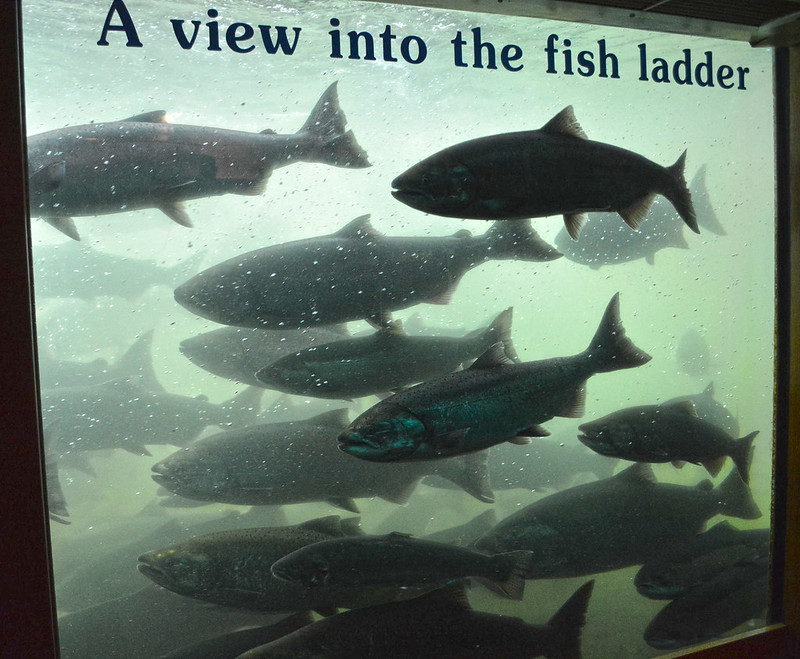
Biden Tells Federal Agencies To Prioritize Columbia Salmon, Steelhead Restoration
A memorandum signed by President Biden today directs a host of federal agencies “to prioritize the restoration of healthy and abundant wild salmon, steelhead, and other native fish populations to the Columbia River Basin.”

“It is time for a sustained national effort to restore healthy and abundant native fish populations in the Basin,” Biden states in instructing NOAA, BPA, COE, USFS, BOR, BLM and other bureaus to use their authorities and resources – as well as assess what else they would need – “to restore these wild fish populations and help ensure that the United States upholds its treaty and trust responsibilities to the Tribes.”
It’s “huge,” said a well-placed member of the region’s sportfishing world.
It also follows on a $200 million agreement announced last week to reintroduce Chinook and other stocks into the Upper Columbia above fish-passageless Grand Coulee Dam, as well as another recent stay in a long-running federal court case over hydropower operations in the watershed.
“This is a step in the right direction,” Shannon Wheeler, chair of the Nez Perce Tribe, told The Seattle Times. “He is saying he is going to honor treaty rights and salmon recovery. He is stepping up to the plate and saying we are going to do this, it is what needs to be done.”
The news was also heralded by the National Wildlife Federation, which took it as focused in part on the lower Snake River, site of four dams of much contention.
“After decades of leadership by the Nez Perce, Yakima, and Northwest Tribes, we are closer than ever to making the restoration of imperiled salmon populations in the Columbia River Basin a reality,” said Collin O’Mara, the organization’s president and CEO, in a press release. “By making salmon recovery a government-wide priority, this Presidential Memorandum provides much-needed momentum for the federal government to fulfill its Treaty obligations and ensure that local communities and ecosystems will benefit from healthy and abundant salmon runs once again.”
Biden’s directive states that since 1855’s treaties signed with Inland Northwest tribe, construction of the hydropower system, population growth and overfishing altered the region’s ecosystem, “severely” reducing numbers of wild Chinook, coho, steelhead and other stocks, impacting treaty rights to fish in usual and accustomed locations, and have also led to the federal listing of 13 fish populations under the Endangeres Species Act.
“I’m really glad President Biden and his administration are taking salmon recovery and Tribal treaty rights seriously and working from every angle to restore fish populations in the Columbia River Basin, while meeting the region’s resiliency needs,” stated Washington senior US Senator Patty Murray (D). “Salmon are absolutely essential for our environment, our economy, and Pacific Northwest Tribes—and ensuring we are making real federal investments in salmon recovery has long been a top priority for me. As Chair of the Senate Appropriations Committee, I’m going to fight for the strongest possible investments to save our salmon.”
On the flip side, one of Eastern Washington’s dam defenders was not pleased by today’s announcement from the president.
“While there may not be explicit recommendations to breach the Lower Snake River Dams in this memorandum, that is the goal of this Administration. This announcement is bureaucracy at its worst and the fact remains that these dams are vital to our economy, our efforts to reduce carbon emissions, and the ability to send our commodities overseas,” stated Rep. Dan Newhouse, a Yakima Valley Republican. “The Columbia River Basin is one of our most valuable natural resources in the Pacific Northwest and I will continue to fight each and every day against this Administration’s efforts to breach these vital dams.”
For more coverage, see the Spokane Spokesman-Review‘s article.
Also announced today was funding support for a number of Northwest tribal hatchery programs, including $3.6 million for construction and expansion of facilities in the Columbia Basin. Specific amounts are $3.4 million for the Colvilles, $1.3 million for the Tulalips, $938,000 for the Sauk-Suiattles, $205,000 for the Nez Perce and $147,000 for the Squaxin Island Tribe.
